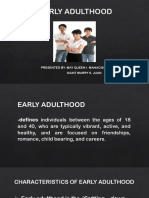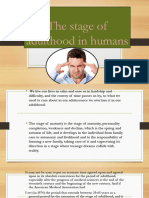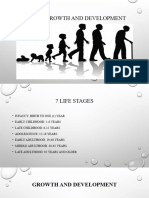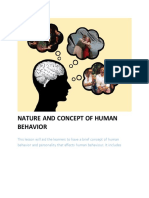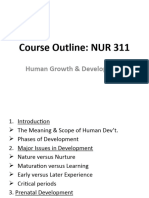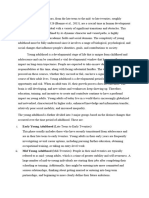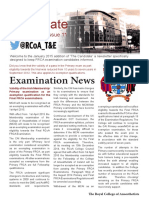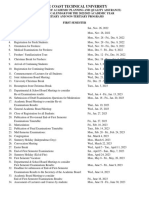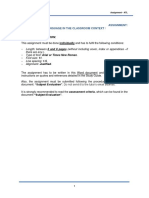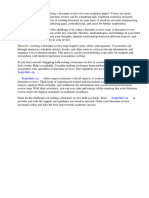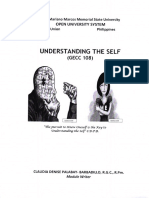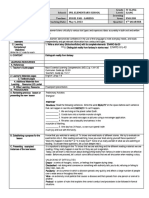0% found this document useful (0 votes)
46 views11 pagesEarly Adulthood
The document outlines the characteristics of early adulthood, defining it as the life stage for individuals aged 20 to 35, who are typically vibrant and focused on relationships, careers, and personal growth. It discusses physical, cognitive, and emotional changes, noting peak physiological development in the mid-twenties and the importance of forming intimate relationships and achieving independence. Additionally, it highlights key developmental tasks such as establishing identity, finding intimacy, and becoming a parent.
Uploaded by
djvbalisacanCopyright
© © All Rights Reserved
We take content rights seriously. If you suspect this is your content, claim it here.
Available Formats
Download as PDF, TXT or read online on Scribd
0% found this document useful (0 votes)
46 views11 pagesEarly Adulthood
The document outlines the characteristics of early adulthood, defining it as the life stage for individuals aged 20 to 35, who are typically vibrant and focused on relationships, careers, and personal growth. It discusses physical, cognitive, and emotional changes, noting peak physiological development in the mid-twenties and the importance of forming intimate relationships and achieving independence. Additionally, it highlights key developmental tasks such as establishing identity, finding intimacy, and becoming a parent.
Uploaded by
djvbalisacanCopyright
© © All Rights Reserved
We take content rights seriously. If you suspect this is your content, claim it here.
Available Formats
Download as PDF, TXT or read online on Scribd
/ 11


